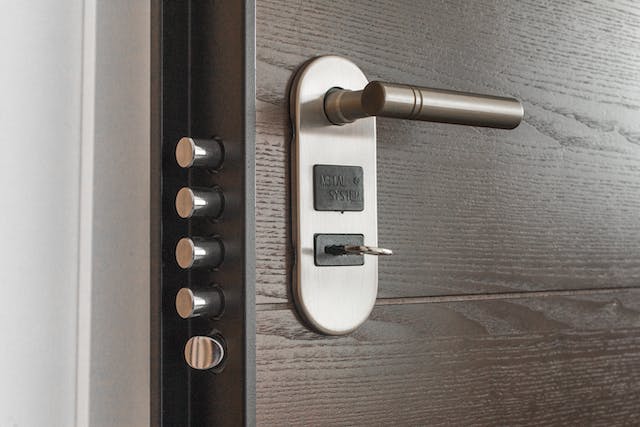.png)
For landlords, ensuring their tenants enjoy peaceful and undisturbed possession of their rented property is very crucial. This assurance is embodied in the legal principle known as the "implied covenant of quiet enjoyment."
This article by SGI Property Management Dallas aims to provide landlords with a comprehensive understanding of this concept, its implications, and how to effectively manage it in their rental properties.
Implied Covenant of Quiet Enjoyment Defined
The implied covenant of quiet enjoyment is a fundamental legal principle embedded in most lease agreements. In other words, it guarantees tenants the right to peacefully and without interference occupy and enjoy the premises they are renting.
This means that landlords are legally obligated to ensure that their tenants can use their rented space without disturbance or nuisance from anyone, including the landlord themselves.
Understanding the Implied Covenant of Quiet Enjoyment
To grasp the significance of this covenant, you must understand that it includes various aspects of a tenant's living conditions. It not only involves physical quietness but also extends to the overall quality of living in the rented property.
Tenants have the right to expect a reasonable level of privacy, safety, and security within their rented premises. While tenants have the right to peaceful occupancy, landlords have corresponding responsibilities to maintain the premises in a habitable condition and address any issues that may arise.

This covenant serves as a foundational aspect of the landlord-tenant relationship, promoting mutual respect and cooperation for the benefit of both parties involved.
Identifying Breach Instances
Understanding what constitutes a breach of the implied covenant of quiet enjoyment is crucial for landlords to avoid legal disputes with their tenants. Some common instances of breach include:
Unauthorized Entry: You must obtain permission or provide proper notice before entering a tenant's rented space, except in emergencies.
Neglect of Repairs: Failure to address maintenance issues promptly can disrupt a tenant's peaceful enjoyment of the property.
Nuisance: You should ensure that other tenants or neighbors do not create disturbances that interfere with a tenant's quiet enjoyment.
Interference with Essential Services: You must not interrupt essential services such as water, electricity, or heating without proper notice or justification.
Constructive Eviction: Extreme conditions such as uninhabitable living conditions can result in a constructive eviction, where the tenant is forced to vacate the premises due to the landlord's breach.
Failure to Address Security Concerns: Landlords must take reasonable steps to ensure the safety and security of their tenants, such as providing adequate locks and lighting.
Consequences of Breaching the Implied Covenant of Quiet Enjoyment
When tenants feel their rights to peaceful enjoyment of their rented property have been compromised, they typically follow a structured process to address the issue. This begins with the submission of a written complaint to the landlord, outlining the specifics of the problem.

Landlords are legally obligated to respond promptly and take necessary actions to rectify the situation. If the landlord's response is inadequate or if the issue persists despite their efforts, tenants may be compelled to escalate the matter further.
Each step of this process is integral to ensuring that tenants' rights are upheld and that landlords fulfill their obligations under the implied covenant of quiet enjoyment.
Tenant Submission of a Written Complaint
When tenants believe that their rights to quiet enjoyment have been violated, they have the right to formally notify the landlord of the issue. This is typically done through a written complaint, which outlines the specific problem or problems experienced by the tenant.
The complaint should include details such as the nature of the disturbance, the frequency of occurrence, and any attempts the tenant may have made to resolve the issue informally.
Responding to the Complaint
Upon receiving the written complaint, you are legally obligated to respond promptly and take appropriate actions to address the tenant's concerns. This involves acknowledging receipt of the complaint and conducting a thorough investigation into the reported issues.
As a landlord, you should communicate with the tenant to gather additional information if necessary and provide a timeline for resolving the problem.
_1.jpg)
Depending on the nature of the complaint, potential actions may include scheduling repairs, addressing noise disturbances, or addressing safety concerns.
Escalation of the Issue by Tenants
If the landlord fails to address the complaint satisfactorily or does not take any action to remedy the situation, tenants may escalate the issue further. This escalation can take different forms, including:
Withholding Rent
In some jurisdictions, tenants have the right to withhold rent if essential services or amenities are not provided or if the landlord fails to address significant maintenance issues within a reasonable timeframe.
Legal Action
If the landlord's breach of the implied covenant of quiet enjoyment persists despite the tenant's complaints and attempts to resolve the issue, tenants may choose to pursue legal action.
This can involve filing a lawsuit against the landlord for breach of contract or seeking remedies such as rent abatement, termination of the lease agreement, or compensation for damages incurred due to the breach.
Other Remedies
Depending on the severity of the breach and the applicable laws in their jurisdiction, tenants may explore other remedies available to them, such as filing complaints with housing authorities, seeking mediation or arbitration, or organizing with other tenants to address systemic issues within the rental property.
Bottom Line
In conclusion, the implied covenant of quiet enjoyment is a fundamental aspect of landlord-tenant relationships. Landlords must prioritize ensuring their tenants' peaceful enjoyment of the rented property to avoid legal disputes and maintain positive relationships.
SGI Property Management Dallas can assist landlords in fulfilling their obligations by providing comprehensive property management services.
From proactive maintenance to prompt response to tenant concerns, SGI Property Management Dallas can help landlords uphold the implied covenant of quiet enjoyment and ensure a positive renting experience for both landlords and tenants.









